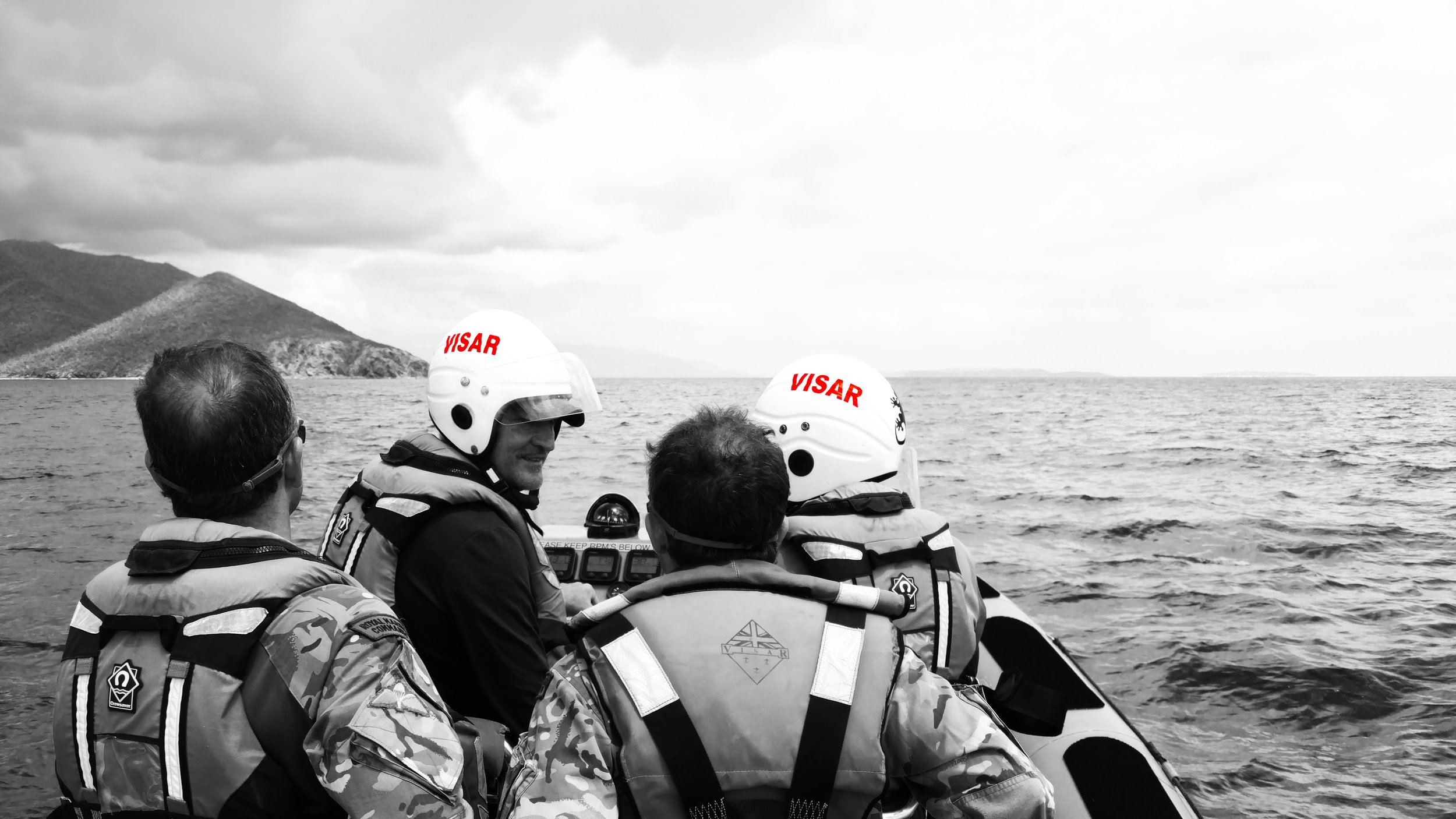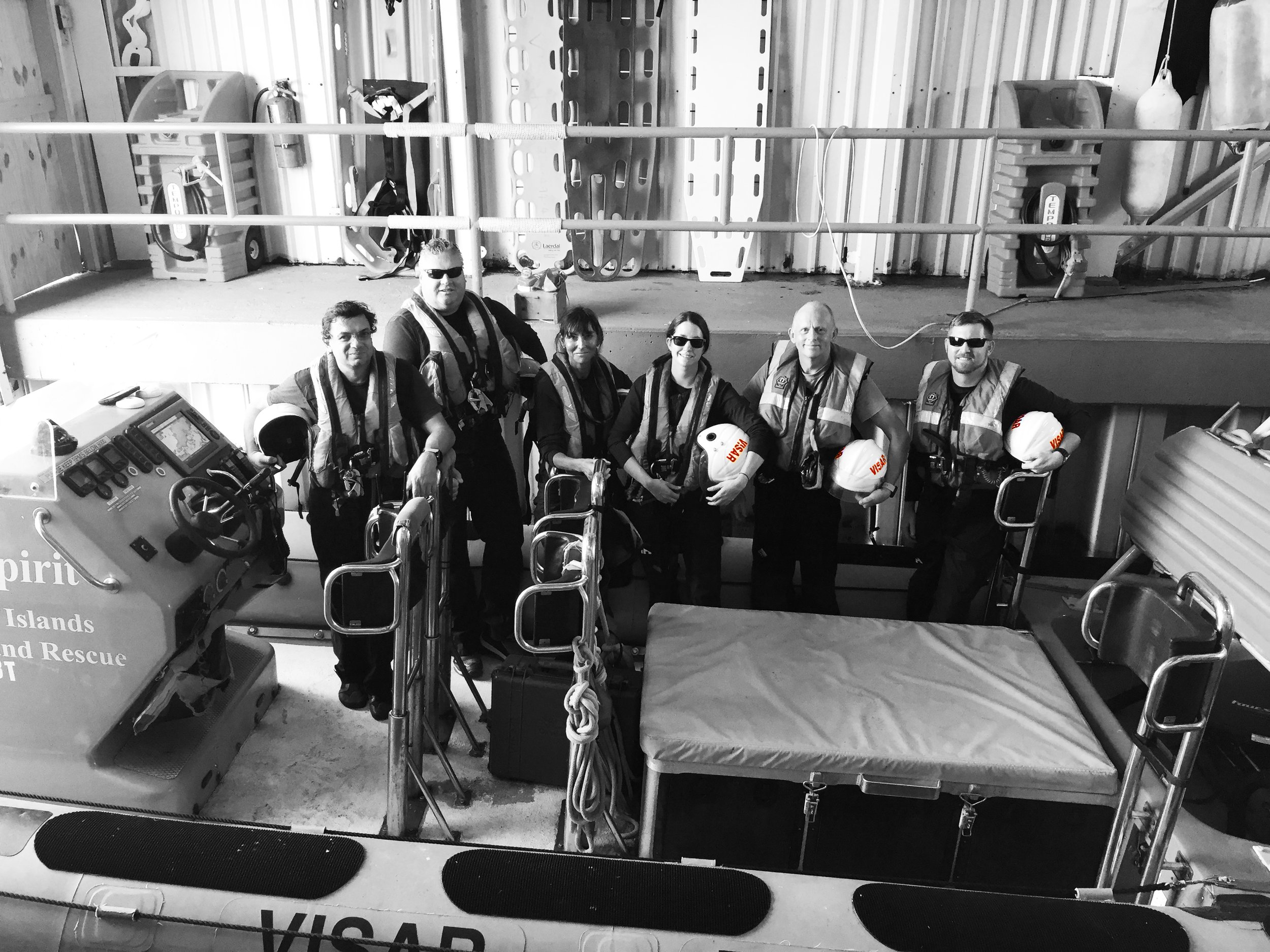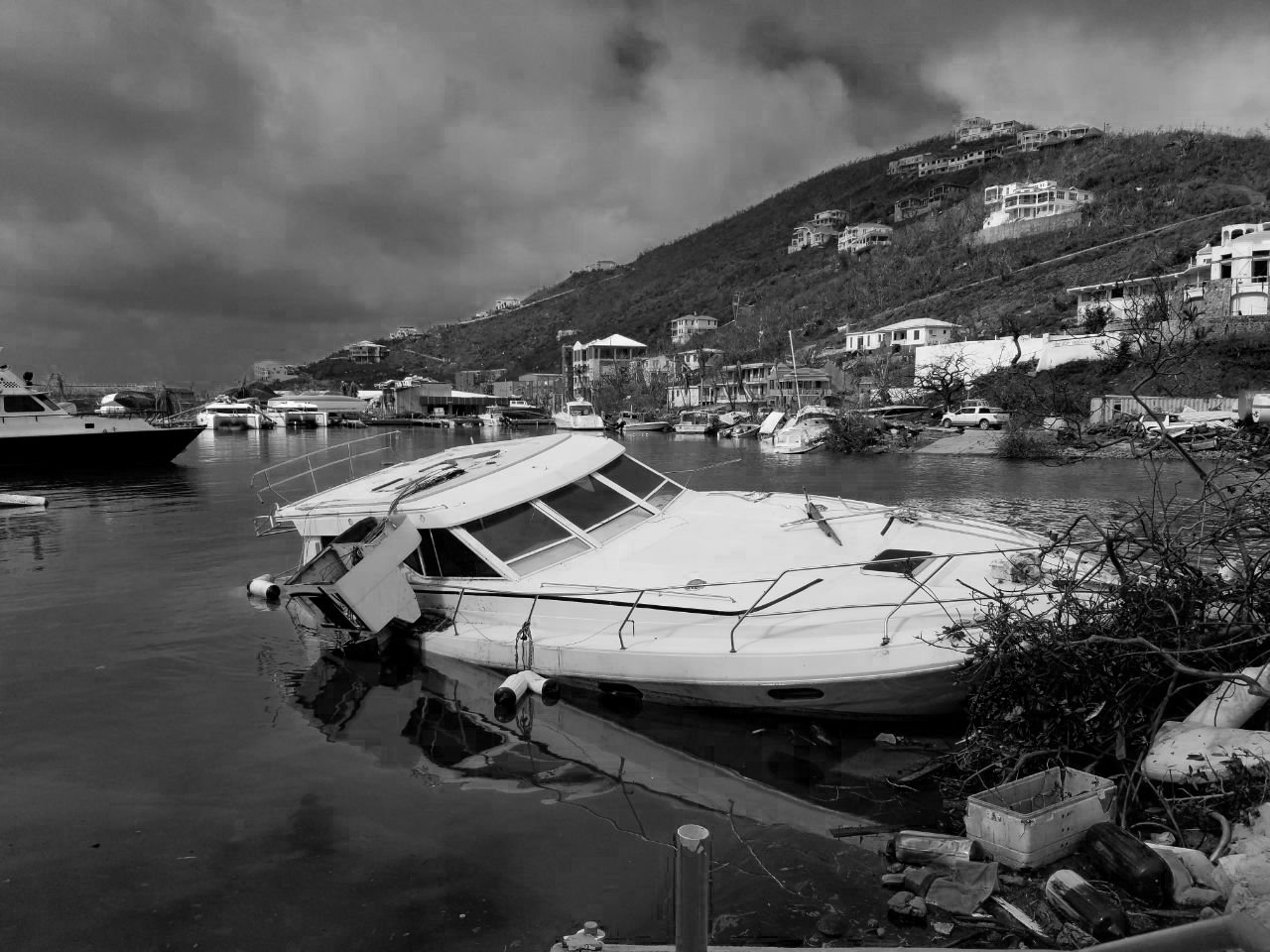
A day in the life of a VISAR volunteer
Virgin Islands Search and Rescue (VISAR) is a non-profit organisation in the British Virgin Islands, who performs emergency and rescue operations at sea. With the primary economy of the islands being tourism, safety at sea is of great importance to the community; VISAR’s 38 volunteer crew members received 204 calls in 2016 and their rescue vessels were launched 83 times. They operate two rescue TP Marine RIBs, one on the island of Virgin Gorda and the other on Tortola and have been using Gecko Head Gear for their SAR activities since 2009.
On 6th September 2017, everything changed on the islands when Hurricane Irma hit. With sustained winds clocking over 185 mph and a rumoured 16 tornadoes, the damage from the storm was described by many as “looking like a set of a post-apocalyptic movie”. Cars overturned, 20-tonne yachts picked up and flipped over, roofs were blown off, power lines dangling and not a leaf or flower to be seen. We spoke to Julie Schneider, Operations Manager of VISAR to find out what life has been like since…

Q: How long have you been working for VISAR?
A: This is my second season so a year and a half, however, I’ve been working and living in the BVI on and off for the last 20 years.
Q: What is the most rewarding part of your role?
A: The majority of my job is office based and the “Mission of Savings Lives at Sea” can become quite abstract. When I see the crew responding to a shout that is the most rewarding part of my job! It truly is one of the most impressive things I’ve ever witnessed. It clearly reminds me why we all work so hard to raise funds to purchase gear and medical supplies.
Q: Given that Gecko Head Gear are based a long way away, what made you decide to equip your boat crew with Gecko helmets?
A: VISAR is modelled on the RNLI in England and they helped up to set up our organization 30 years ago. We also opted for Gecko helmets, based on the RNLI’s recommendation, product testing and performance history.
Q: What do the crew like about their Gecko Head Gear?
A: They like how durable and comfortable the helmets are, which is important when you may be wearing one for several hours during a search and rescue operation.
Q: You enjoy beautiful weather for most of the year on Tortola, is it very different during the wet season?
A: The BVI is an outdoor community so yes when it rains it feels like a cloudy rainy day from back home in Connecticut. It gives me an excuse to stay in and watch movies! Thankfully it never rains for long so you can still enjoy some parts of the day.
Q: Had you experienced many significant storms before Irma?
A: I experienced Hurricane Sandy in New York City and handfuls of storms in Connecticut but nothing like this. In August the territory dealt with severe flooding, so it’s been a very long season.
Q: We knew Hurricane Irma was on its way, but at what point did you realise that it was going to have a significant impact on the islands?
A: We had our crew meeting on Monday (storm hit Wednesday) and one of our coordinators said, “I’ve been here for many hurricanes, so plan on having no power for at least a week.” We still had crew without power 6 months later. When the meeting started it had just gotten upgraded to a Cat 4, I don’t remember when it got upgraded to a Cat 5 as we were too busy prepping for the storm. On late Tuesday night, my boyfriend who is a pilot was looking at satellite images of the storm. Based on the look in his eyes and the tone of his voice, I knew it was going to be bad, but no one could have ever imagined how bad it actually was going to be.
Q: Did you ever consider evacuating?
A: Honestly no. However, I wanted out when we heard Hurricane Maria was coming, only two weeks later, but by the time I heard how bad it was going to be; the airport was closed.
Q: Where were you during the storm?
A: My boyfriend, dog and I were hunkered down in the back bedroom of our rental house which I refer to as “The Bunker”. We put beds over the windows and I moved enough food and water into the room to last us a week. I had our to-go bags packed with clothes, passports, money, and electronics in Ziploc bags. We were lucky as we didn’t lose our roof, but the storm blew out the trap door to the storage unit below the house, which took out the skylight directly above it, so the hurricane was whipping through our hallway. Thankfully our front door was made out of mesh with iron gates, so it had somewhere to go. I wish I could accurately describe how it felt to experience the barometric pressure change, feeling your house shake non-stop for hours, the intense sound of the wind blowing and feeling like you might die. Honestly, I don’t remember any specific details from the second part of the storm, I’m thankful my brain has blocked it out.
Q: What protection is there on the island? Was there anywhere to hide out or any hurricane-proofed buildings or shelters?
: We do have shelters that were used during and after the storm. As for hurricane-proof buildings, it was the luck of the draw what withstood the storm. Houses with concrete walls and roofs made out the best. Many of my friends started out at home for the first half but made a mad dash to alternative shelter during the eye as they had lost their roof. A few of our crew made it to the Cane Garden Bay police station and stayed in a cell for the second part of the storm.
Q: How long was it after the storm started before you felt safe going outside again?
A: Safe? That word has a whole new meaning. The storm started to really hit around 10am and was over about 5pm (I have a few pictures with time stamps which is the only way I remember). I don’t remember going out after the storm but I’m sure I did to take my dog out. Since it was dark and we were mentally exhausted, we stayed indoors till the sun came up the next morning.
Q: For those who did leave the island, how long was it before they returned?
A: It took us 5 weeks to get a flight back to the states via St. Thomas in the USVI; I returned just after the New Year. Some people have left the island, some came back after the new year and we hear the folks that work in financial services will return after Easter.


